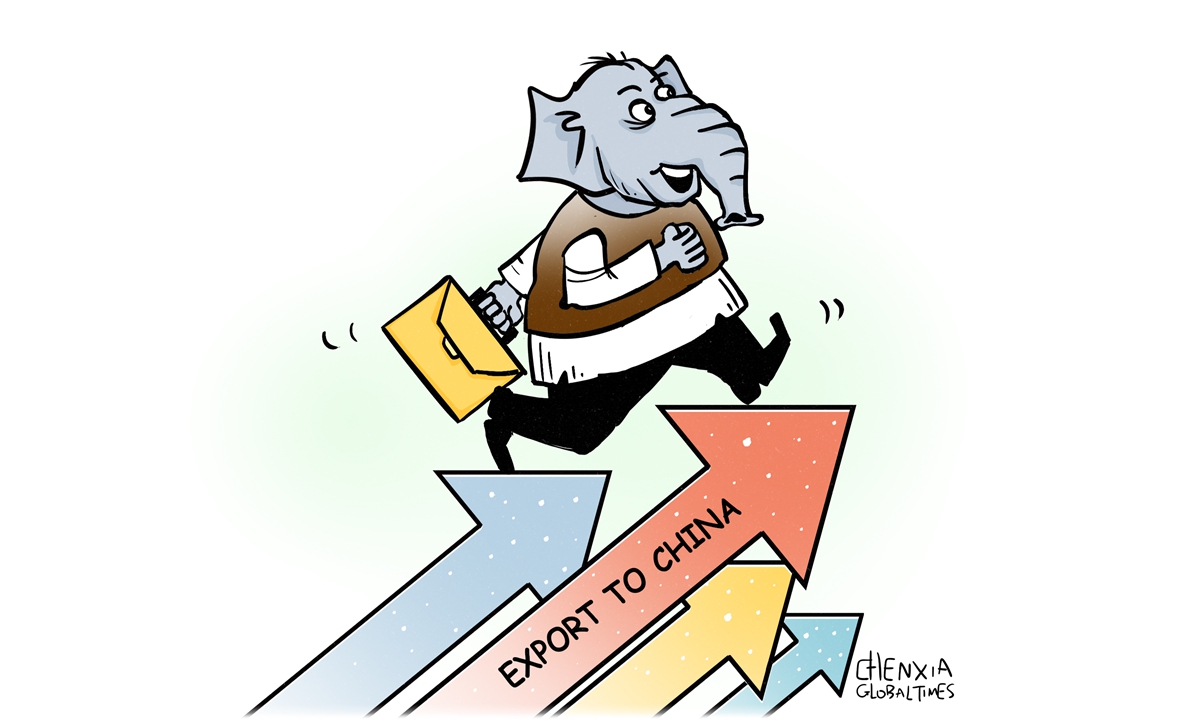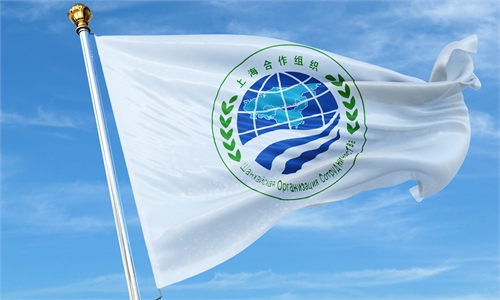
Illustration: Chen Xia/Global Times
India's exports to China rallied in the first five months of 2023, a piece of good news for India's manufacturing ambitions. When further tapping the potential in China-India trade, both sides need to pursue two-way market openness and fair competition.During 2022, India's exports to China dwindled to $17.48 billion, a year-on-year decline of 37.9 percent. The situation improved in the first five months of 2023 with total merchandise exports to China rising 3.9 percent.
Amid global economic uncertainty and growing protectionism in the Western world, it seems China has become a more valued consumer market for made-in-India products.
India's manufacturing industry has been on the rise in recent years. The S&P Global India Manufacturing Purchasing Managers' Index surged to a 31-month high of 58.7 in May, with factory orders rising at the fastest clip since January 2021, Indian media reports said recently.
Sustained expansion is a positive sign for India's manufacturing sector, showcasing resilience despite facing elevated inflationary pressures.
It is undeniable that India is making rapid strides in electronics production. Now, a key question is how to expand exports. Only in this way can India build an export-oriented economy and find a sustainable development model for its manufacturing sector.
For India, what is crucial now is how to translate its manufacturing expansion into export growth and further propel its upward trajectory, but it won't be easy.
The global economy faces severe challenges from rising uncertainties, increasing volatility, geopolitical conflicts and trade protectionism, which are pressuring the world's major economies. External demand remains sluggish, bringing challenges to India's economic transformation.
Against this backdrop, the Indian business community's enthusiasm for the Chinese market is understandable. After four decades of rapid growth, China's economic development has created a sizeable middle class. It is believed China's continued urbanization process will further stimulate the country's consumer potential, which will offer more opportunities for multinationals, including Indian companies.
India long worried about its large trade deficit with China and tried to expand exports of labor-intensive goods to the Chinese market.
China is willing to grant more market access to Indian exporters in a bid to explore India's export potential in fields such as agriculture, manufacturing and labor-intensive industries, but openness should be two-way and fair, which means India should consider granting more market access to China, too.
At least, the Indian side should act in compliance with the laws and regulations, and provide a fair, just and non-discriminatory business environment for Chinese companies to invest and operate.
In recent years, India has intensified its suppression of selected Chinese companies operating in the South Asian country, most prominently in the smartphone sector.
For instance, Indian authorities reportedly seized $725 million from Chinese smartphone company Xiaomi in 2022, claiming that the company had broken India's foreign exchange regulations.
For China and India - two emerging markets with high complementarity - effective economic and trade cooperation is in the interests of both countries and their companies. If the South Asian country wants made-in-India products to gain more access to the Chinese market, it should further open up its domestic market while creating a more fair and open business environment for Chinese companies.
If companies from China and India can take advantage of their economic complementarity in manufacturing, pushing up exports and imports of intermediate products, their bilateral trade will certainly increase. In the first five months of this year, bilateral trade saw an up-swing. Many possibilities lie ahead for the two countries.
The author is a reporter with the Global Times. bizopinion@globaltimes.com.cn



